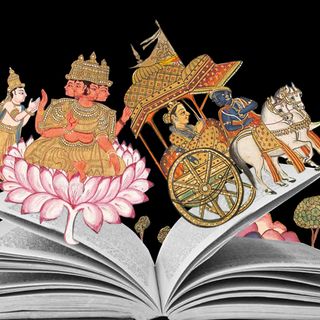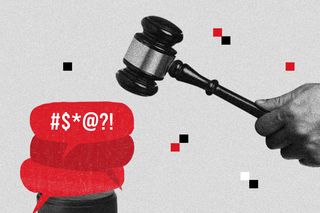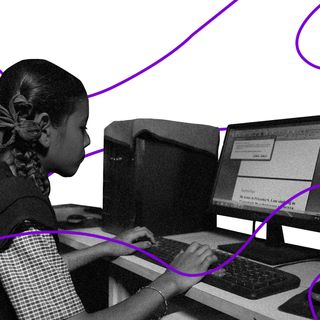
Can Australia’s ‘Anti Trolling’ Law That Targets Anonymity Really Help Users?
In terms of the initiative, it’s great; in terms of the substance of the law, it might not be a good blueprint, experts flagged.

The Australian government has announced the introduction of a new “anti-trolling” law to protect citizens from online abuse. It aims to do so by unmasking individuals who use the anonymity afforded by the internet to harass people.
Under the law, social media companies like Facebook or Twitter would have to disclose information about individuals behind troll accounts so that people on the receiving end of their harassment can sue them for defamation. If the companies fail to do so, they would “have to pay for the troll’s defamatory comments.”
“The online world should not be a wild west where bots and bigots and trolls and others are anonymously going around and can harm people… That is not what can happen in the real world, and there is no case for it to be able to be happening in the digital world,” Scott Morrison, the Prime Minister of Australia, said at a press conference.
As a friend pointed out to me, the country seems inspired by South Park‘s fictional website “Troll Trace,” which helps law-enforcement identify the real identities of Internet trolls. Irrespective of what the Australian legislature’s source of inspiration may be, the fact that there needs to be a way to curb the menace of online trolling is undeniable.
A 2020 study spanning 22 countries found that more than half of the women surveyed have been harassed and abused on social media — leading to mental stress and even fear for physical safety. Across countries, these attacks online were found to be most common on Facebook, followed by Instagram and WhatsApp, and then, on Snapchat, Twitter, and TikTok.
In India, eight out of 10 people — and 41% of women — have experienced some form of online harassment, according to a 2017 report by The Hindu.
Related on The Swaddle:
Urban Indian Women Are Increasingly Combating Phone Harassment
So now, the question is: can the Australian law serve as a roadmap for countries to follow in their bid to stop trolls? In terms of the initiative, perhaps yes; but in terms of the substance of the law, likely not, experts flagged.
“[One] real issue, ironically enough, is one of user safety,” Jennifer Beckett, a lecturer in media and communications at the University of Melbourne, argued. She explained that while “online anonymity gives trolls a mask to hide behind… it also allows people to access support for addiction or mental health issues… or for a young LGBTQI+ person in fear of real-world violence or disapproval to find a community online. Online anonymity can [also] be a crucial shield for victims of domestic violence who want to avoid being found by their abusers.”
Beckett believes “forcing social media companies to provide users’ details to a court also opens up the possibility of ‘abuse of process.’ This is where the legal process itself is used as a form of intimidation and bullying or, worse, for an abuser to gain access to their victim.” Instead of solving the problem of trolling, if Beckett’s fears were to come true, the legislation would have created a completely new source of problems for Internet users. This makes the law a not-so-good blueprint for countries like India to follow, especially since the government has already been accused of misusing its power to threaten people’s freedom of expression on social media.
Moreover, as Beckett also points out, the threat of suing social media companies for defamation might not have much backing in law. Defamation is a far more specific offense than trolling, and “to prove defamation, one has to prove the content posted has damaged the victim’s reputation.” According to Beckett, it may not be possible for social media companies to actually publish accurate information about troll accounts since, first, many people use fake names, contact information to sign up; and second, they may simply choose not to respond to any communication from the social media companies. As such, “any defamation action brought against the company itself would likely fail,” Beckett notes.
Related on The Swaddle:
Women Athletes Faced ‘Disturbing Level’ of Online Abuse During Tokyo Olympics: Survey
Yet, it remains important to find ways to prevent bullying. If the harassment continues unabated, experts fear the existing gender gap on the internet will widen further — India, at present, already features among countries with the “biggest gender gaps in internet access,” according to the 2020 study. “Driving girls out of online spaces is hugely disempowering in an increasingly digital world and damages their ability to be seen, heard and become leaders,” Anne-Birgitte Albrectsen, CEO of Plan International, told Al Jazeera last October.
Further, as writer Swati Chaturvedi argues in her book, I Am a Troll: Inside the Secret World of the BJP’s Digital Army, in India, “trolling is an organised political activity,” and the ruling party “uses volunteers and paid employees to function in concert and to execute centralised directives to “constantly peddle hate tweets and conspiracy theories and slander journalists.'” If there’s any truth to these claims, would India truly be looking for ways to curb what seems to have become an important political tool of sorts? Arguably, not.
While Australia’s new legislation isn’t nearly perfect, perhaps, we are a long way from even enacting laws to deal with the wide variety of trolls flourishing in the country’s digital landscape.
If you or someone you know is facing harassment online, please refer to The Swaddle’s guide to know your rights.
Devrupa Rakshit is an Associate Editor at The Swaddle. She is a lawyer by education, a poet by accident, a painter by shaukh, and autistic by birth. You can find her on Instagram @devruparakshit.
Related


Police Have an Obligation to Act With Empathy: Kerala HC
